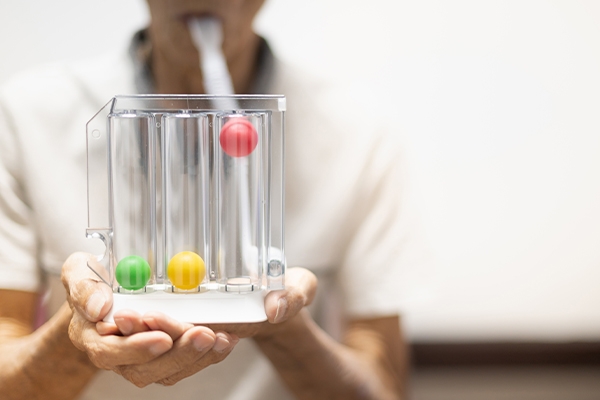Know Your Lung Function

The lungs are vital organs susceptible to disorders such as air pollution and respiratory infections. These disorders can impair lung function and increase the risk of chronic lung disease later in life. Unfortunately, many people lose lung function without showing any obvious symptoms.
What is a lung function test?

A lung function test is a medical procedure to assess how well the lungs are working. This test is an indicator of lung health and overall body health. A slight decrease in lung function can be associated with an increased risk of death.
By measuring lung function, doctors can make early diagnoses, provide treatment for various conditions, and assess the severity of respiratory diseases such as asthma, COPD (Chronic Obstructive Pulmonary Disease), pulmonary fibrosis, respiratory muscle weakness, and tracheal narrowing.
This test is also helpful in determining whether symptoms such as shortness of breath or wheezing are due to heart or lung problems.
Lung function tests are often done before surgery to ensure your lungs are strong enough to support the procedure. However, certain conditions may delay a lung function test, such as
- a recent heart attack
- heart surgery or other surgeries on the chest or abdomen
- eye surgery
- pulmonary embolism
- aortic aneurysm
- acute conditions that may affect the test, such as persistent nausea and vomiting
Before undergoing a lung function test, your healthcare provider may advise you to:
- Stop taking breathing medications temporarily.
- Wear loose, comfortable clothing that does not squeeze your chest.
- Avoid strenuous exercise.
- Do not smoke.
- Avoid caffeine.
- Do not eat heavy meals.
What are the types of lung function tests?

Lung function tests can help diagnose and monitor breathing problems, especially if you have symptoms such as shortness of breath or are awaiting surgery. Here are the main types of lung function tests:
1. Spirometry
Spirometry is the most widely available test to assess lung function. It measures the volume of air you can exhale in a given amount of time, starting with a maximum breath.
You will wear a soft nose clip to ensure that you are breathing only through your mouth.
With your lips around a mouthpiece connected to the spirometer, you will inhale as deeply as possible and exhale as instructed. The test lasts about 10 minutes and includes both forceful exhalations and normal breaths.
2. Lung volume test
This test, also known as body plethysmography, is used to measure the amount of air your lungs can hold. It can also tell you how well your lungs can expand and empty air.
You’ll sit in a large, transparent booth wearing a nose clip. Then, the technician will ask you to place your lips over a mouthpiece, and a machine will detect changes in air pressure or volume as you breathe.
This test helps determine if there’s a blockage that’s causing air to be trapped in your lungs.
3. Lung diffusion capacity test
This test measures how well your lungs can transfer oxygen from the air you breathe into your bloodstream. You’ll inhale and exhale a small amount of safe carbon monoxide through a mouthpiece.
When you exhale into the machine, it measures how much carbon monoxide your blood has absorbed based on how much is left in the gas you breathed out. This test usually takes about 10 minutes to complete.
4. The cardiopulmonary exercise test
This test evaluates how your heart, lungs, and muscles respond to physical activity. You will be connected to a device that monitors your heart rate, blood pressure, and blood oxygen levels. Then, you will walk on a treadmill or ride a stationary bike.
This test measures your lung capacity and how your body responds to physical activity.
**
Lung function testing is a safe procedure. However, you might experience temporary side effects, such as dizziness, lightheadedness, or fatigue from breathing too deeply.
You may also cough from blowing into the mouthpiece or feel tired from exercising. These symptoms should go away soon after you complete the test.
In rare cases, lung function testing can cause a collapsed lung (pneumothorax).
It may also increase your heart rate. Inform the staff if you have recently had a heart attack or other heart issue.
If you have any medical conditions issues, inform the staff before undergoing the test to ensure the safety of the procedure. GWS Medika Clinic, a health clinic in Jakarta, provides this service. Make an appointment now.



